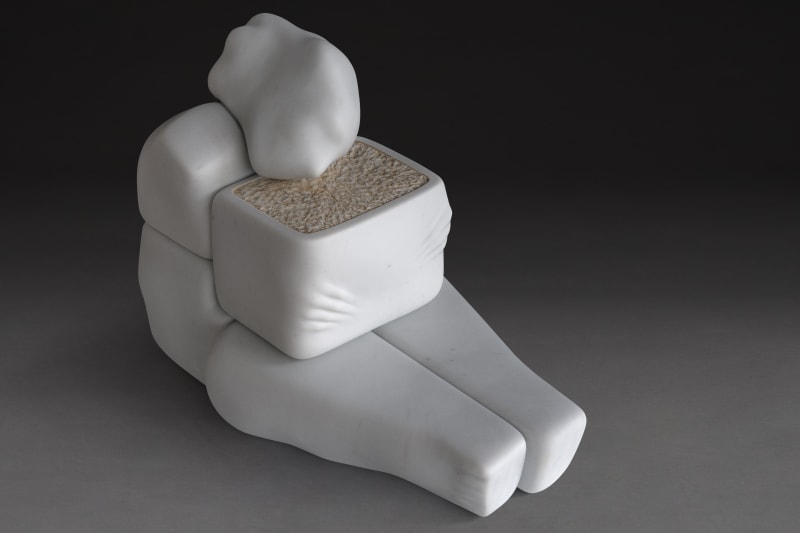Tabari Artspace presented a series of nine new sculptures by artist Khaled Zaki, a major pioneer of modernist sculpture in Egypt. His marble works explore the relationship between form and material in the context of geopolitical unrest in the Middle Eastern region and reflect Khaled’s aspirations for a brighter, more hopeful future.
Through the exhibition, the artist attempted to capture the essence of his subjects with minimal formal elements, while retaining the integrity of pure white marble. This ethereal colouring suggests a blank canvas from which we may rebuild and start afresh. Each of the sculptures consists of six separate marble components arranged in varying compositions to represent figures in states of fear, defensiveness or repose. The resulting works seem simultaneously modern and ancient, seeking to illicit a diverse emotional response born from the artist’s investigation of the infinite possibilities of the natural form.
Inspired by the fragments of buildings and shrapnel littering the streets in the aftermath of the Egyptian Revolution of 2011 and the Egyptian protests of 2013 as well as the ongoing unsettlement across Egypt, Afghanistan, Iraq and Syria, the artist attempts to symbolically rebuild crumbled societies; to restore order and shape a better future. This is encompassed by the titular concept of rebirth.
Currently based between Cairo and Tuscany, Zaki was born in Suez, Egypt (b. 1964) and has been a key contributor to the development of modernism in Egypt during the second part of the twentieth century. During the early years he studied sculpture and established his use of stone and bronze in the illustrious workshops of Pietrasanta, Italy, a town famous since the 15th century for its carving workshops. Whilst in Italy, Zaki became increasingly inspired by the style and techniques of Italian masters including Michelangelo, Bernini, Canova and Adolfo Wildt. These luminaries of sculpture played an important part in his artistic development and continue to inform his work to this day.

